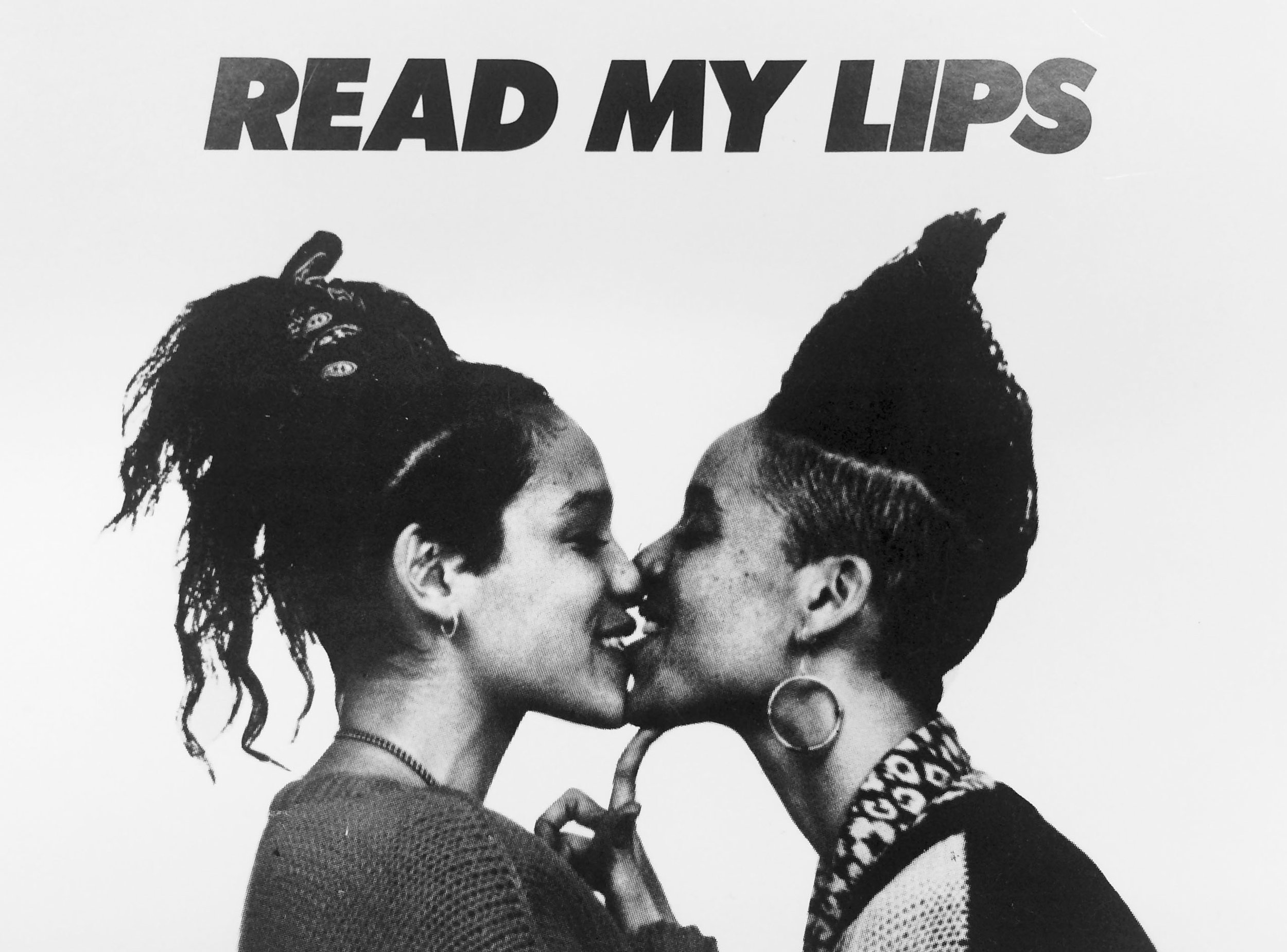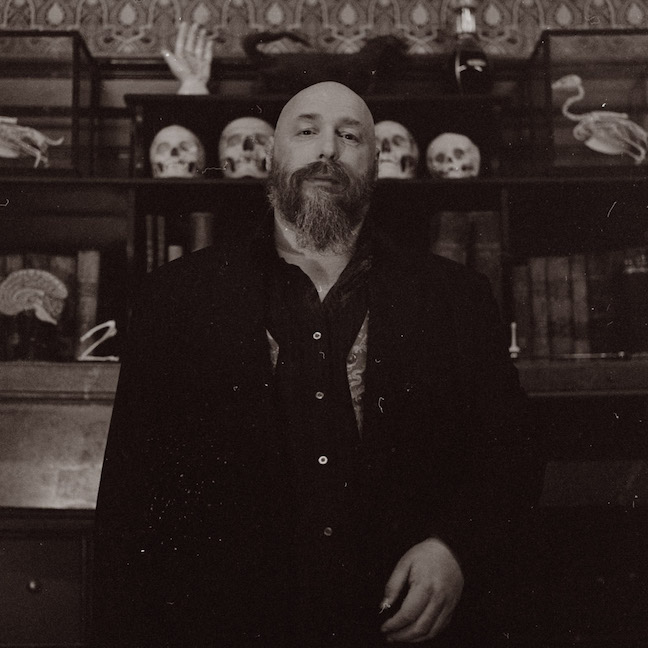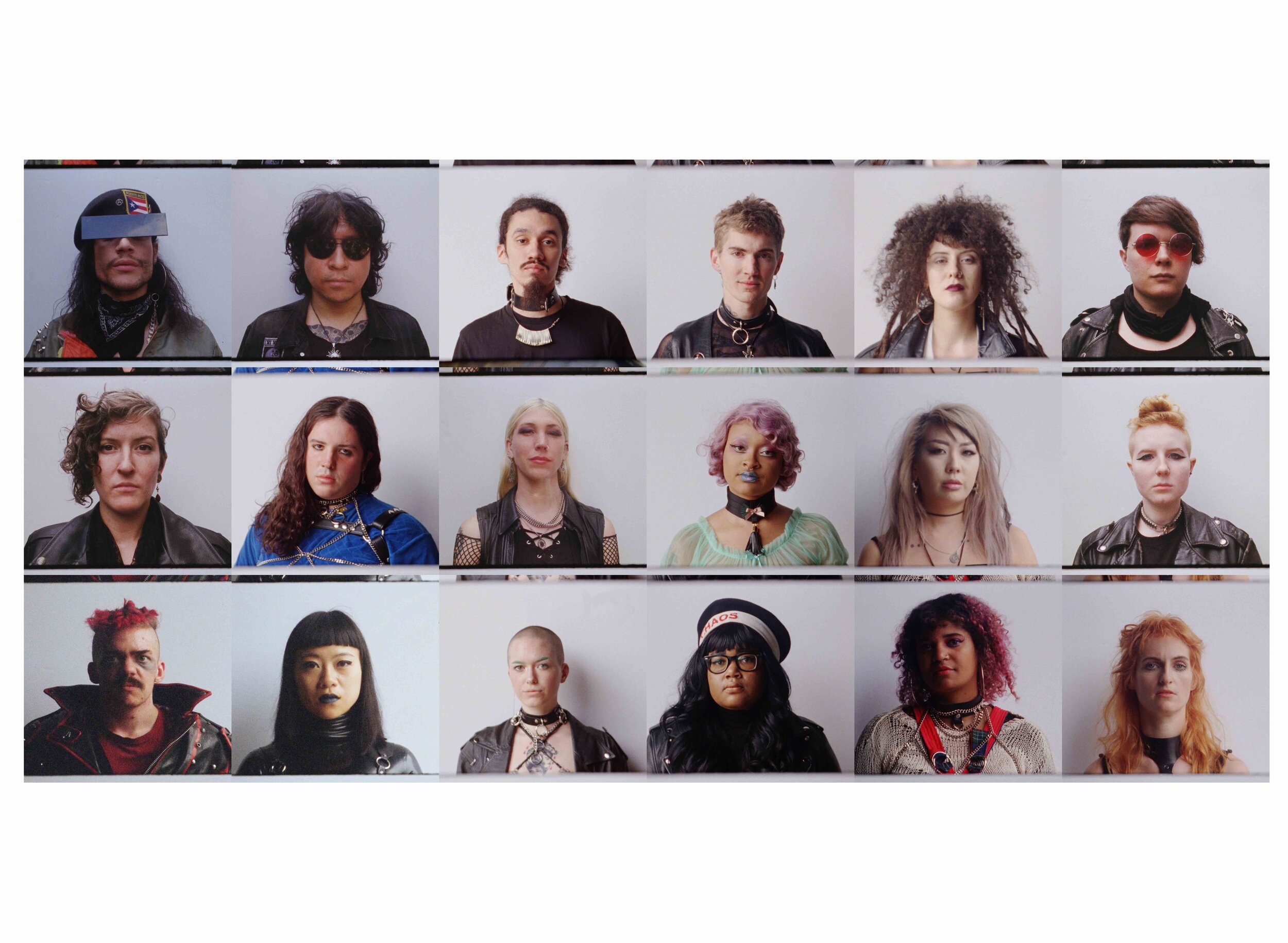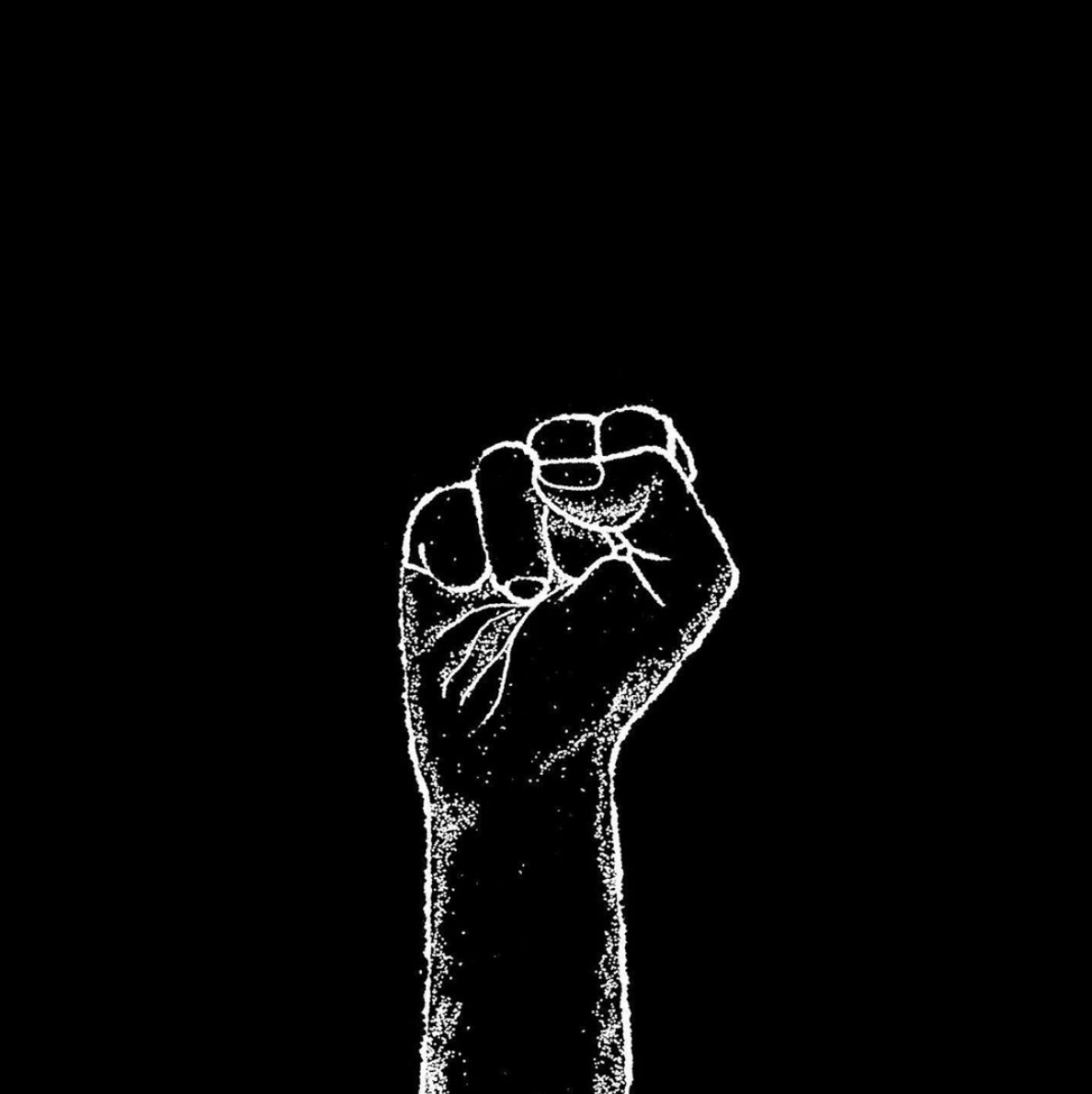ACTING UP with Avram Finkelstein
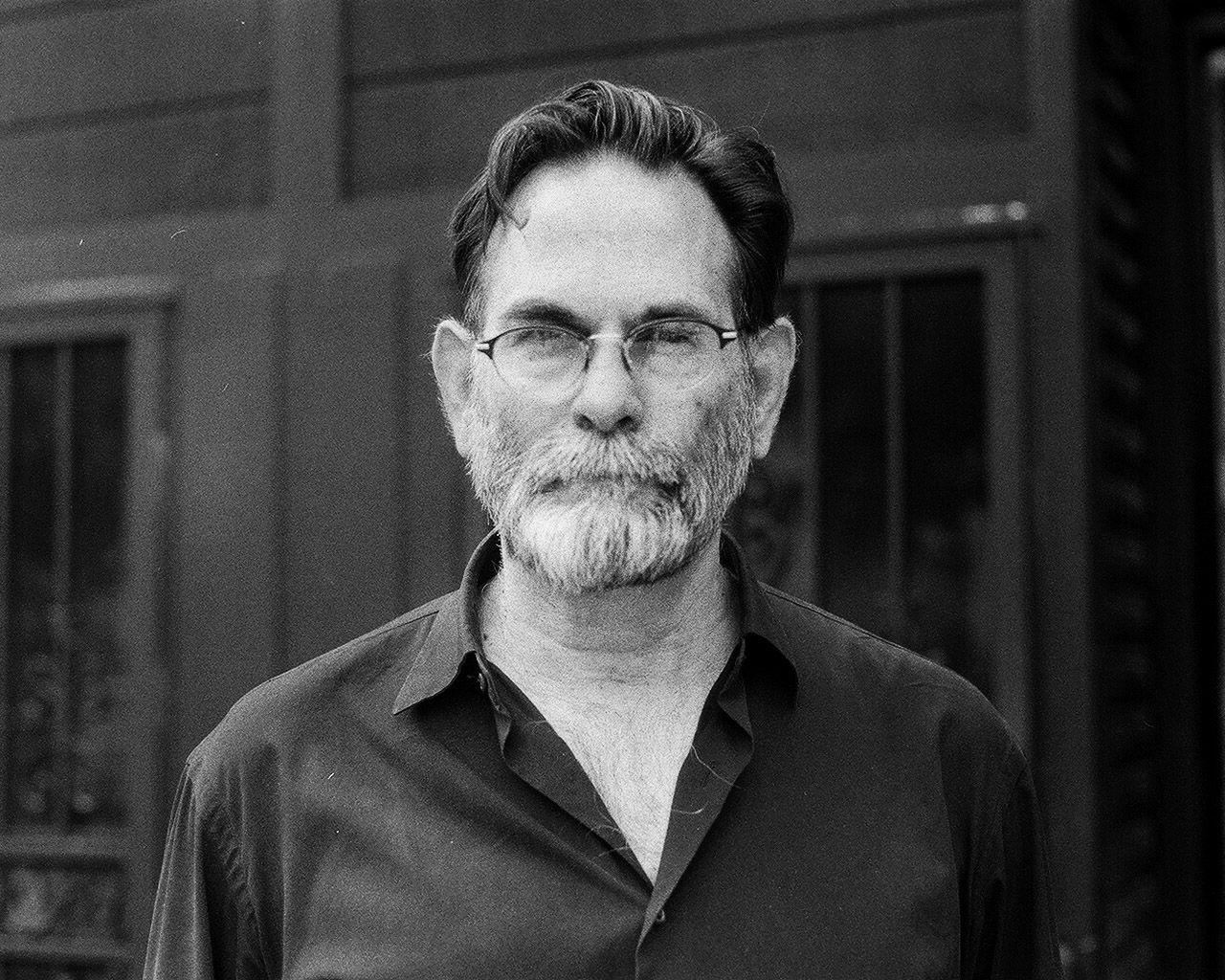
Avram Finkelstein is a renowned artist, AIDS activist, and a founding member of the legendary Gran Fury, ACT UP and Silence=Death collectives. Good Trouble sat down with him to talk about the history of queer resistance and the techniques of using culture against itself.
For legendary artistic activist Avram Finkelstein, resistance is perennial; a continuous string of gestures that passes from one generation to the next. He plays the long game. He makes room for resistance and like cultivating fertile soil trusts that something great will grow.
Avram’s activism was born out of the AIDS crisis in the New York City, where he bore witness to the violent atrocities of political inaction. His queer community--once silenced and divided--harnessed biting humor to make subversive propaganda, educating a willingly ignorant and fearful public. Though Avram is most well-known for being one of the six who designed the 1987 Silence=Death poster, the little pink triangle that is an emblem of AIDS activism, he is a prolific creator of efficacious visuals—his activism dead set on harnessing the underestimated power of the public. His practice of political art continues today with the Flash Collective, an exercise that produces public art inventions by harnessing a group of individuals who inhabit any given space.
Days before the 50th anniversary of Stonewall, Avram brought Good Trouble to an unassuming coffeehouse in Windsor Terrace where a long and bodacious conversation was had over what he considers the best grilled cheese in New York. Three decades since Silence=Death and hundreds of thousands of broadsheets later, his words on the matter of resistance are coloured with interdisciplinary wisdom. He communicates with the clarity of an academic, the creative timing of an artist and the unrelenting passion of an activist.
You are famous for your didactic one-liners. How has the role of wit changed in the digital age?
It is commonly understood that the assassination of Arch Duke Ferdinand was the one thing that set the entire 20th century in motion. We are living in that moment now. Everything that is happening right this very minute is going to predetermine every event that happens over the rest of the century. So, we have to ask ourselves two questions: What are the ways in which the 21st century is different from every other century and what are the ways is it the same?
One of the bubbles I inhabit is the art world. The art world is having this, for lack of a better word, "woke" moment, that really is about figuring out how to ethically colonize everyone who sits outside of the Western European aesthetic tradition. It's partly a bid for relevance and survival. It's also an act of colonization. It isn't at all what we are being told it is. The thinking of curators and academics and art writers is not actually relevant to way activists and people involved in any kind of resistance movement should be thinking about it. It bears looking at it because it represents a paradigm shift in terms of language and image.
“If you want to reach an audience in late-stage capitalism, it’s impossible to do it without humour. Humour is one of the most powerful ways we have to speak to ourselves”
We live in an image culture. We are forced into it. There is no way out of it…The image-culture is based on images and texts, and I believe the language of advertising is the folk-language of capitalism. It’s snarky -- drawing on derision, irony, insults, and self-deprecation. All of the things that we in the past would describe as 'ghetto-humour', in my case, the Jewish Ghetto. Jewish humour depends on self-deprecation. There are 100 words for how a person could be stupid in Yiddish. And I think that is true for a lot of communities that have a history of oppression: the ways in which we talk to ourselves about is snarky. If you want to reach an audience in late-stage capitalism, it's impossible to do it without humour. Humour is one of the most powerful ways we have to speak to ourselves.
I was brought-up in a hyper-ironic space. The social media that embodied my adolescence had already codified that humor and was so masterful at spitting out these very addictive phrases and language. Now, when I walk around NYC and see a barrage of rainbow flags, I find it a bit nauseating the unnuanced show of commodification, yet the act itself is still technically a form of resistance, right?
In a post-postmodern world, no one's ever really understood what followed postmodernism. There have been a lot of half-hearted attempts to finger the AIDS crisis as the death of postmodernism: the idea that irony would be dead, that authorship couldn't exist. Those are ideas that fly out the window when people are dying in hospital corridors. We haven't exactly found language for it in our culture yet, because we are actually in a period of transition. The thing that we forget about our shared spaces is that the way that advertising works is by ubiquity. It's insistence and repetition that makes it function. What you are noticing is being power-washed by images of the rainbow flag, but every single act of resistance is as important as burning the Department of Treasury down.
“Every single act of resistance is as important as burning the Department of Treasury down...Resistance is an ongoing and never-ending string of gestures.”
Let's talk about SILENCE=DEATH. Six people made that poster. It landed at the right moment when the AIDS movement gelled. It hit the streets of NY weeks before the first ACT UP meetings. It was ACT UP activism, and the people who responded to that poster, that made that what it is. We have it backwards. Activism and resistance is about individual agency. One person can make as much change as ten thousand people can make. It's a different type of change. It's incremental.
The reason why your broadsheet started is because people woke up the day after Trump was elected and their hair was on fire. My phone was ringing off the hook. People asking: "What do we do?", "how do we fix this?", “how do we make this stop?", which are, from my perspective, really male questions. They are questions rooted in power; in the hegemonies that have always been there. Trump didn't invent what's wrong with Trump. The dissolution of the Voting Rights Act, reproductive rights for women, and mass incarceration…These are things that have been going on decades, centuries depending on which issue you are talking about. I get the gesture. I do understand the impulse. But it's the wrong question. The way you fix it is by being engaged and taking the next political step for yourself. Politicization is ongoing process. And even people who are hyper-political are learning things about their political environment every morning they wake up and encounter something...The idea that resistance leads to change and change is an endpoint and that endpoint is a discrete object is an idea based in capital. That isn't how resistance works. Resistance is a string of gestures. It's ongoing and never-ending. The same way that capital is perpetual motion machine, resistance needs to be a perpetual motion machine.
“Progress is a spiral burrowing through something. The pendulum swing is the checker’s version of the 3D chess reality”
Silence = Death, 1986, Silence = Death Project. Poster, offset lithography, 29 x 24". Image courtesy of the artist.
Postmodern philosophy challenges binary thinking and puts forth that multiple, contradictory truths exist simultaneously… Perhaps people are just addicted to simple stories?
We are going back to folktales. Capitalism is a folktale gone wrong. The Internet is a folktale gone wrong. The only thing that is binary as far as I'm concerned is that you can engage, and there's a potential for something else to happen, or you can not engage, and everything stays the same. In that binary, I don't think there's a choice. You have to act. No matter how painful, dangerous, futile, terrifying it is. And people have acted throughout history because they had to not because they wanted to. And that's the story of resistance, right?
We are force fed all of these constructions. One of them is this idea of linearity, of the pendulum that swings from right to left. Progress is not actually a swing, it's more like a spiral burrowing through something. That's what culture is, that's what engagement is, that's what politics is, and that's what resistance is. All part of this spiral, and the spiral goes from left to right, so in a way it's part true. The pendulum is the checkers version of the 3D chess reality.
Taken from Avram’s blog.
“Pride is like shooting fish in a barrel...To pass up on a million people grabbing things from you is insane.”
Is it an easier image to swallow?
It's an enlightenment notion of truth. We're stuck in the Enlightenment, the period of human achievement, which is based on Western European aesthetic, which is hegemonic… Our social spaces are identical. They are spaces for story-telling, of appeals to the id, and that is Trump. Trump is pure id. Trump is Freudian.
Again, you have a choice. Every activist has decisions to make about the moment they are in. They can either participate or not. No one is free. Even white dudes have to consider the complexities of who they are in that moment. As activists – when we are terrified, exhausted, dejected, or feel hopeless – we have to put our agency down in the ground and know that someone else will come along and pick it up. Resistance does not die. It is just handed from one group to another. We play the long-game.
Trusting that someone will pick up where you left off. Did you always have that innate trust or did you have to learn that lesson?
The magic word that made me start paying attention to what you were saying to me was broadsheet. I've handed out broadsheets at Pride, off and on, for three decades. Some of them have gotten me into so much trouble, I can't even tell you. I've always done them with a small group of people, anywhere from a handful to two dozen. All made by collectives that run on the idea that every voice is essential so nothing is edited out. We cross-edit them. Multiple minds are always better than a single mind. This year, I've done twenty-five- thousand that are being handed on the subject of liberation, and I've learned some super interesting things.
Men Use Condoms or Beat It, 1988, Gran Fury. Flier, crack-n-peel sticker 7 x 8". Image courtesy of the artist.
Pride is like shooting fish in a barrel. I am going to try to make that sound less horrible. Over the decades, queer people have had a rolling sense of realizations about who they are in the world, and the institutional uses of the colonization of queer people. Queer people have always been hungry for information about ourselves because we've always been obliterated from the conversation. Now, not so much. But back then, at the height of the AIDS crisis, very much so. For context, there hadn't been a same-sex couple kiss on television. It was such a different world. You might as well have been talking about the 19th century...Even in a normal pride situation, people come from up and down the seacoast to go to New York, and they are hungry for stories about themselves — new stories or ideas that they haven't heard. They might not even know it, but if you package it like swag, they will grab it out of your hands. To pass up on a million people grabbing things from you is insane…to not do a broadsheet every pride. And throughout these conversations, I've learned about what works, what didn't.
Gran Fury used to go around with cameras and photograph the homophobic graffiti on our own work to help us assess what was working and what wasn't… We did a poster about sexism with the Women’s Caucus that was about men using condoms. We put an erect penis on it and before the wheat-paste was dried, the penis was torn off the wall. But the tagline ‘Men Use Condoms Or Beat It’ is hilarious so we just used the text. We did the text as stickers, as shopping bags, we recycled it at the Venice Biennale and juxtaposed it against a giant billboard about the Pope and the Catholic Church. That one poster went on for years. If the question you are asking is, are you born knowing the world? The answer is if you live your life with your eyes open you learn about the world every day.
So much of negotiating ideological contradictions is about being at the right place at the right time, for you. So, let's talk about Queer Liberation March, the alternative, anti-corporate event that occurred simultaneously with Pride.
“Are you born knowing the world? The answer is: if you live your life with your eyes open, you learn about the world every day”
It has existed since the very first Pride march. Since the Heritage of Pride Foundation decided to march through a consortium of queer business owners. Rather than marching out of the bars and into the streets, which was the original intent of Gay Liberation, they decided it would be better to march into the village and into the Street fair so people can buy funnel cakes. This debate has been going on forever. There have been radical ideas forever but institutional power structures have no use for radical stories, which is why it is essential for us to have open-spaces for counter narratives.
Flash Collective Poster. Image courtesy of the artist
And this ties directly into your work with Flash Collectives and the idea of creating temporal spaces of subversion.
Or conversely, activating individual agency on a one-by-one communal basis. The Flash Collective is a distillation of the permissions and structures that are found within an activist organization. It's a series of exercises that enable a group of strangers to go on the record and say just want they want to say in a public space that day. I'm convinced that if we got on the F train to Queens and asked everybody not to leave the car, we would have a shit-kicking series of works. I think people want to hear their voices in public spaces, we are just told we can’t, or we lack the necessary skills. You'd be shocked how inventive, original, and compelling every single person on the street is. We are trained to think that we are irrelevant unless we are in the slipstream of late-stage capital, so part of your fear about the Internet is about getting lost in it. The rapidity is an indication that you might not be seen, but guess what? Before we carried computers in our pockets the same thing was true about the world.
“[The Internet] is space for speaking, not a space for listening, and resistance can only happen with listening. Social spaces are interrogative, power is declarative. ”
So the fear is fundamentally the same, it just exists now on a virtual plane?
Throughout history, people have been force fed the reasons why they don't matter and they are forced those ideas by the hegemony that control power: the church, capitalism, communism — every culture has versions of it. To go back to the Jung, the group of people in a room thing, has incredible, radical potential. We are just trained to not see and not respond to it.
There's a pretty obvious bout of nostalgia from people in my generation about the pre-internet world. It feels escapist in nature though.
Yes, the love of analog. This goes back to the first question of how the 21st century is different. The internet is not a communal space. It is not a space for conversation. If you are hungering for a conversation, do not go to the internet. Go to dinner with some friends, form a collective, a reading group, whatever you think you have to offer. The mistake we make is that the internet appears to be a community, but it isn't. It's a space for speaking, not a space for listening, and resistance can only happen with listening. Social spaces are interrogative, power is declarative.
…The internet is really good for telling people where cops are, it is not good for getting people to go to the demonstration in the first place. Nothing will ever change the physical threat of action in a physical space.
Liberation feels like a whole-body experience. Liberation does not feel a virtual entity. Is part of your focus on liberation a reclaiming of the body?
We decided for Stonewall 50 to ask people from each of the five decades what liberation meant to them growing up, and what 21st century liberation means to them now. You would think you would get a dense set of political liberations. Most people never used the word…even really political people. I thought the piece was going to be hard-hitting political analysis of the 21st century. It skirted on it but a lot of it wasn’t. It proves the assumption that our physical spaces differ so wildly from the ways in which we talk about them, and talk about ourselves. This goes back to folktale. We live in a world where the images of our commons are so different from what our commons really are. We think we know where we are because we have so much information but, in fact, what we are told about ourselves has nothing to do with what we feel about ourselves. We are doing everything completely backwards yet we think we are super smart because we have the coolest phones in the world. Every single time you click on the Terms & Conditions without reading what they are, you are giving your way your data, and we've been doing it for decades. So the idea that came up after Trump was elected, that you could fix whatever enabled that to happen, it completely incorrect. It's the wrong set of questions.
It's deranged our love of techno-fixes.
It really relates to the question of privilege. Privilege is a one-way mirror. If you are on the privileged side you think the world looks the way you see it, but if you are on the other side of that mirror you know it's glass. You know that it's an illusion. The further you are from privilege the more you really can understand what's happening. The people who called me were mostly white. What Trump did was rip the bandage off of centuries of oppression that have been there since the beginning and have never been dealt with…We joined an international right-wing movement that has been going on for the last decade and a half. A lot of people thought it wasn't possible because America has always been land-locked and, you know, detached.
Reclaiming the colors of the Rainbow: Queercrisis.tumblr.com, Image courtesy of the artist
“Privilege is a one-way mirror and if you are on the privileged side you think the world looks the way you see it but if you are on the other side of that mirror you know it’s glass. ”
We've always been dreaming.
Sleep-walking…Walking into walls.
My philosophy professor once told me that it takes 200 years for philosophy to seep into public conscience. If we are now in Enlightenment-era thinking, then what comes next… Existentialism?
We are in a radicalizing moment. By that I mean hegemony-smashing. I don't think that can be universally said about all of Europe...Europe has phased sets of self-realizations about colonialism and America has never addressed it. If we are hearing the dying gasps of presumed neutrality of whiteness in America, and I believe that is what it is, then we are headed for a better world, the world I've been fighting my entire life to be in. And we are in a very painful period of transition. But my people have lived through pain. I have seen terrible things. This is one of those moments. I am not going to candy-coat it. People will continue to suffer, it's not over yet. But, the cow is out of the barn on intersectional questions. There is no turning back on the fact that people of color are going to be the majority in America. And we are going to be better for it. And the more women and people of color in power, the better. And whatever privileges I have to cut, take 'em. That's how I feel about this moment. The world we are heading for is the world I want to live in.
Top: Avram Finkelstein in New York, June 2019, by Tess Gruenberg
ACTIONS
For more of Avram’s wisdom: read his book, After Silence: A History of Aids Through Its Images & check out his recent art and blog.
Support your community coffeeshops and go get a grilled cheese at Steeplechase Coffee.
Get involved in ACT UP, or any organization you find compelling. Join a collective or reading group, if there aren’t any you know, make your own.







